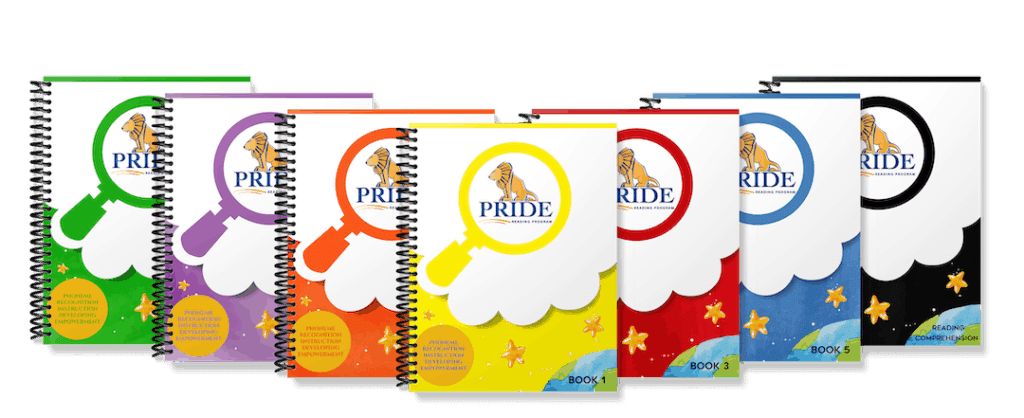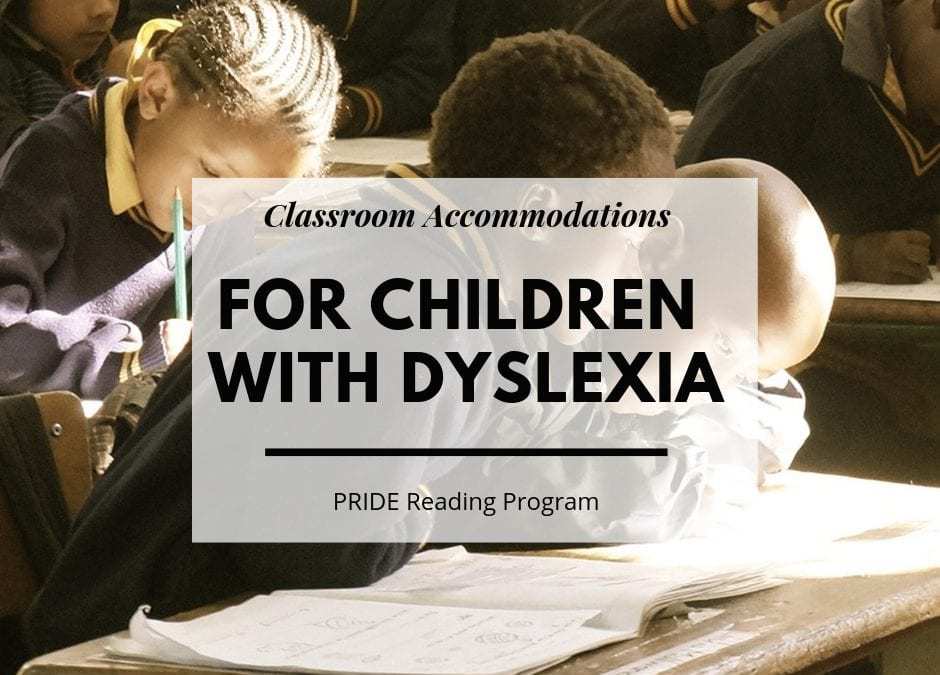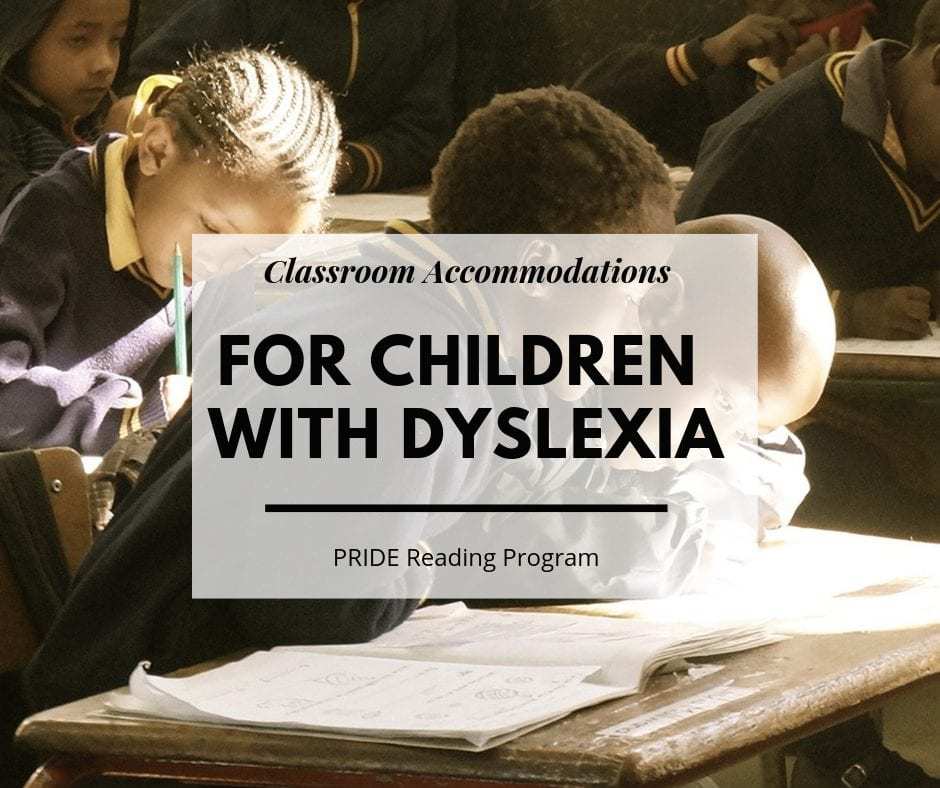If your child has been formally tested and diagnosed with dyslexia, it is imperative that you request accommodations for your child’s specific needs within the classroom. Appropriate accommodations should be written into your child’s IEP or 504 Plan. On today’s post I am going to share with you some suggested classroom accommodations for children with dyslexia.
These classroom accommodations are meant for children in grades K-5.
In the Classroom
Seating
Your child should sit as close to the teacher as possible. Your child also needs to see the whiteboard and work area. Make sure that your child is away from any distracting sounds, materials or objects.
Reading Out Loud
For children struggling with reading, they should not be forced to read out loud in front of the class – unless they want to. If this is necessary (class plays, skits, etc.) the child can be warned ahead of time and shown exactly which passage they will have to read so that they can practice it ahead of time. If your child raises his or her hand and wants to read – then of course they should be given that opportunity.
Technology
Your child should be allowed to use any technology tools that the parent or school is willing to buy to work around their challenge areas.
Your child with short-term memory problems (e.g., the child understands math processes, but has short term memory problems that interfere with remembering math facts) a table of facts or a calculator could be provided.
For children whose handwriting is slow, illegible and includes many reversals, an audio recorder or a computer with word processing software should be used for written work.
Homework Assignments
You will want to make sure that your child’s teacher will accept dictated homework. On assignments that require a lot of writing (summaries, book reports, essays, projects, etc.) students can dictate and the parents can act as a scribe.
For children who read below expected levels, audio books, talking books, educational videos and films, can help provide the general information that the child is unable to acquire from the textbook. Check out your local library. They will provide audiobooks and videos free of charge.
Orton-Gillingham
Your child with dyslexia will need a very structured, systematic, cumulative and multisensory reading, writing, spelling and comprehension program to help him or her learn to read. Children with dyslexia are all capable of learning to read with the right program. Make sure that the school is providing your child with an Orton-Gillingham or Structured Literacy Reading Program.
[et_bloom_inline optin_id=”optin_4″]
Testing
Teachers can provide your child with a study guide with key terms and concepts as well as model the answers for the student. Children with dyslexia need clear and concise directions and want to know exactly what is expected from them. It is beneficial for your child to know ahead of time the purpose of the test. What will the tester/examiner be looking for?
Your child should be allowed to give the answers orally.
Before beginning the test, it would be beneficial to make sure that your child understands what to do on each part or section of the test.
Your child should be allowed unlimited time on all tests, in a quiet and focused environment.
I Have a Resource for You!
Thank you so much for reading my post. You might also enjoy reading my previous posts:
How I Help b/d Letter Reversals
Please don’t leave without checking out the PRIDE Reading Program. The PRIDE Reading Program is an Orton-Gillingham curriculum that is used by teachers, tutors, and homeschooling parents worldwide with great success.




